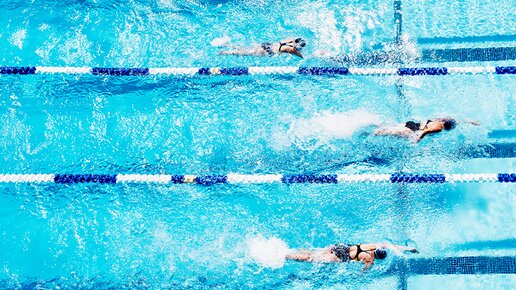Energy, strength, fat burning – everything that sports people strive for. In energy metabolism, there is a compound that is absolutely necessary for burning fat when exercising: L-carnitine. The vitamin-like compound has an effect on many other areas.
What is L-carnitine?
C7H15NO3 - who wouldn’t know that? For those who were less attentive in chemistry lessons: L-carnitine is a compound formed in the liver, kidneys and brain from the amino acids lysine and methionine that plays an essential role in energy metabolism. Our bodies can therefore produce L-carnitine itself, but require vitamins B3, B6, and C as well as iron in sufficient concentrations as cofactors. At the beginning of the 20th century, L-carnitine was first isolated from meat extract and named after the source ("carnis" being Latin for meat). Accordingly, we usually eat enough L-carnitine through our diet if red meat – especially sheep, beef or game – is consumed. In a plant-based diet, it can be helpful to provide L-carnitine with supplements. Especially if the body's own production is inhibited due to metabolic disorders (e.g. diabetes mellitus), or the need is increased due to exercise.
Effect: What is L-carnitine good for?
Energy metabolism
L-carnitine is required primarily in skeletal and cardiac muscles, which also explains its relevance in the sporting field. The vitamin-like substance is involved in transporting long-chain fatty acids to the cell’s power stations, mitochondria, where they are burned to create energy. For a long time, it was therefore also advertised as a "fat burner". What seems certain is that a deficiency can lead to obesity – because rapid fatigue, fat deposits in tissue and elevated blood lipid levels are among the non-specific symptoms of carnitine undersupply. However, studies show that increased intake of L-carnitine does not lead to an increase in fat burning.
Effect on the period
L-carnitine can also affect the female cycle because it has a positive effect on natural hormone production. A double-blind clinical study conducted in women suffering from PCOS* showed that the group taking L-carnitine had more regular menstruation compared to the placebo group. The pregnancy rate was also increased.
*Polycystic ovarian syndrome (PCOS) is characterised by women often having irregular or no menstruation. It is also often associated with obesity and can lead to symptoms caused by high levels of male hormones (androgens).
L-carnitine in sport
L-carnitine is a crucial factor in energy supply and physical performance. This also explains the increased demand for people who are involved in competitive or grassroots sports, which is difficult to meet with food alone. Through its role in energy generation, L-carnitine can also help athletes build muscle. Adequate intake counteracts premature fatigue by stimulating fat metabolism and energising muscle cells.
Symptoms & signs: How can a deficiency be identified?
Laboratory diagnostics of the serum, urine or muscle acetylcarnitine level can be performed to diagnose L-carnitine deficiency with certainty. Symptoms that could indicate a deficiency are rather non-specific and may include, among other things, reduced performance and rapid fatigue, weak concentration, fat deposits in the tissue and elevated blood lipid values as well as increased susceptibility to infections.
Because the body can produce L-carnitine itself, it is usually not a low-carnitine diet that is the problem, but a lack of the nutrients that the body needs as production cofactors. Carnitine deficiency is often the result of disease. In diabetics and patients with renal insufficiency, the excretion of carnitine is increased. Exogenous intake also varies depending on the diet. Vegans basically do not consume L-carnitine through their diet, but meat eaters get around 20-300 mg L-carnitine per day through food.
Daily requirement
The daily requirement for L-carnitine has not been unequivocally clarified and can therefore only be estimated. Therefore, the German Nutrition Society has not set any daily requirements. However, as the body produces L-carnitine itself, deficiencies are rare.
What foods contain L-carnitine?
The clue is in the name: carnitine is derived from the Latin word carnis, or meat. So if you eat meat, you’re very likely to get enough of your L-carnitine needs. Lamb, beef and veal have the highest proportion of L-carnitine, while in other meats the proportion is significantly lower. In pasta, apples, broccoli or potatoes, the proportion is almost negligible.
| Foodstuffs | L-carnitine content per 100 g |
|
Leg of lamb |
190 mg |
|
Beef rump steak |
135 mg |
|
Veal schnitzel |
105 mg |
|
Bratwurst |
38 mg |
|
Duck breast |
28 mg |
|
Turkey leg |
13,3 mg |
|
Salmon filet |
13,2 mg |
|
Chicken breast |
7,8 mg |
|
Milk |
4 mg |
|
Rice pudding |
3,5 mg |
|
Tuna fish |
3,4 mg |
|
Quark |
3,0 mg |
|
Trout |
2,4 mg |
|
Cream cheese |
1,6 mg |
|
Chicken eggs |
0,8 mg |
|
Noodles |
0,7 mg |
Table: L-carnitine content in mg per 100 g
L-carnitine supplementation: Intake and dosage
People with plant-based diets, such as vegetarians or vegans, basically do not consume carnitine through food. A dietary supplement in the form of L-carnitine capsules can be useful here, which should be taken throughout the day with plenty of fluids before or with meals.
Benefits of the brand raw material Carnipure®
The Swiss manufacturer Lonza has conducted several human studies in collaboration with universities and research centres around the world to investigate the benefits of Carnipure® L-carnitine for human nutrition. Since L-carnitine plays a central role in metabolism, the Carnipure® ingredient has proven beneficial in many areas, especially in sports nutrition and weight management, where Carnipure® is well established. Carnipure® L-carnitine enjoys continuous scientific support and high raw material quality.
Coenzyme Q10 and L-carnitine
This combination has the potential to support migraine patients. One study found that the combined intake of both preparations over a period of two months was able to reduce lactate levels and headaches.
L-arginine and L-carnitine
According to an American study, men with erectile dysfunction could benefit from combined administration of L-arginine and L-carnitine.
L-carnitine and alpha lipoic acid
Alpha lipoic acid is a sulphurous fatty acid that acts as an antioxidant and can protect cells from free radical damage. The combination of alpha lipoic acid and L-carnitine can in turn promote fat burning and help build muscle, as well as support the function of the heart muscle and skeletal muscles.
Conclusion
L-carnitine plays an important role in energy metabolism. If the right micronutrients are available in sufficient form, it is produced by the body itself. Those who eat meat also consume L-carnitine in sufficient quantities so that there is hardly any deficiency. However, if you are vegetarian or vegan, this source of L-carnitine is eliminated and taking L-carnitine capsules can be useful – especially if you exercise and want to boost fat metabolism. However, L-carnitine is not a “miracle medicine” for weight loss and without exercise and other measures, it has no effect as a fat burner.
Frequently asked questions about L-carnitine
The vitamin-like substance ensures that long-chain fatty acids are transported to the cell’s power stations, called mitochondria, where they are used to produce energy. This can have a positive effect on muscle growth and regeneration.
If you are vegetarian or vegan, you will hardly get any L-carnitine from food. Athletes in particular can then have an increased need that can be covered by taking L-carnitine capsules. Carnitine deficiency is often the result of metabolic disorders, in which case it is recommended to discuss supplementation with a medical professional.
This can only be confirmed by doctors using laboratory tests. Non-specific symptoms can include fatigue, lack of concentration or an increased susceptibility to infection.









